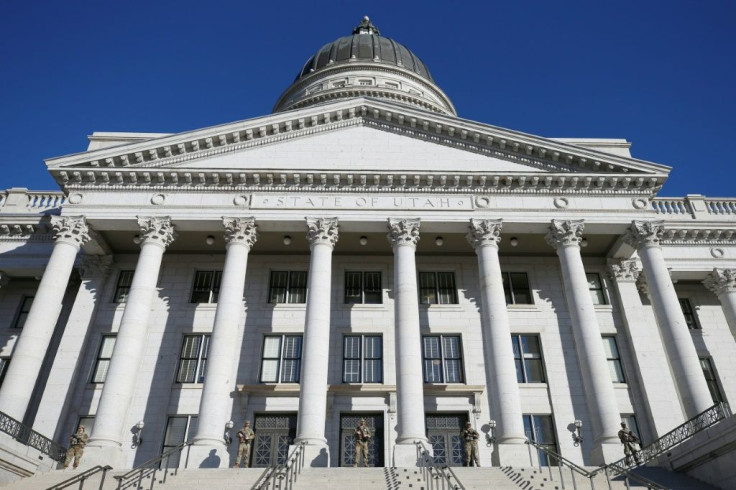1.4M Jobs Lost Vs 900K Lifted Out Of Poverty? Sharp Edge Of Dems' $15 Wage Plan Revealed
KEY POINTS
- The federal minimum wage has been stuck at $7.25 per since 2009
- CBO says the Raise The Wage Act will raise 900k people out of poverty
- But it will also raise the federal deficit by 54 billion through 2031
- Spending on Medicaid and Medicare would increase because of higher labor costs.
Raising the federal hourly minimum wage to $15 as proposed by progressive Democrats would bring a spectacular economic impact — by lifting 900,000 people out of poverty and raising the wages of 17 million Americans. But a report by the Congressional Budget Office (CBO) that outlined these benefits also showed the hidden sharp edges of the proposal: the wage hike would cost 1.4 million jobs by 2025 when it comes into full effect and lead to higher prices for goods and services.
Progressives Reps. Bobby Scott, D-Va., Pramila Jayapal, D-Wash., and Stephanie Murphy, D-Fla., as well as Sens. Bernie Sanders, I-Vt., and Patty Murray, D-Wash., introduced the Raise the Wage Act of 2021 last month. It calls to gradually raise the federal minimum wage from $7.25 to $15 by 2025.
The immediate positive impact of the wage raise is without a doubt: the CBO said in its report released Monday that some of the 900,000 people it will take out of poverty are paid less than $15 an hour. It will also help an estimated 10 million who make slightly above that wage rate.
While spending on food stamps and child nutrition programs would reduce, Medicaid and unemployment benefits would increase because of higher enrollment by those who lose their jobs. And spending on Medicaid and Medicare would increase because of higher labor costs, the Congress' independent scorekeeper said.
The CBO report said the wage raise will increase the federal deficit by $54 billion over a decade and reduce employment in the country by 1.4 million, or about 0.9 percent.
"In 2021, most workers who would not have a job because of the higher minimum wage would still be looking for work and hence be categorized as unemployed; by 2025, however, half of the 1.4 million people who would be jobless because of the bill would have dropped out of the labor force," the CBO said, adding "young, less educated people would account for a disproportionate share of those reductions in employment."
While 20 states have raised their minimum wages last year, the federal minimum wage has been stuck at $7.25 per since 2009. In November 2020, Florida had raised the state's minimum wage to $15 an hour. However, the wage hike is a gradual one and will be phased in gradually over the next six years.
But experts have questioned whether the CBO overstated its findings. Michael Reich, UC Berkeley Professor of Economics and Co-Chair of the Center on Wage and Employment Dynamics at the Institute for Research on Labor and Employment (IRLE), told reporters that the wage hike would have many positive aspects on the U.S. fiscal outlook — like higher wages leading to increased consumer spending and bringing in more taxes for federal programs like Medicare and Social Security.
Ironically, the report could actually help push the bill through quicker. Politico reported that the deficit pile-up forecast would help Sanders include the minimum wage increase in President Joe Biden’s $1.9 trillion economic-relief plan under the fast-tracked budget process.
I congratulate Speaker Pelosi, Chairman Scott and @USProgressives for including a $15 minimum wage in the House reconciliation bill. In 2021, a job should lift workers out of poverty, not keep them in it. Increasing the minimum wage will give tens of millions of workers a raise. https://t.co/19CkngNsN6
— Bernie Sanders (@SenSanders) February 8, 2021
Sanders said in a statement: “What that means is that we can clearly raise the minimum wage to $15 an hour under the rules of reconciliation.”
White House press secretary Jen Psaki had said Biden remains “firmly committed” to a $15 minimum wage but also that the Senate parliamentarian has the final say on whether it survives in the final package.
According to Rep. Bobby Scott, the Democratic chair of the House Education and Labor Committee, the raise is a must. "At a time when many of our essential workers are still not being paid enough to provide for themselves and their families, we must do everything in our power to give these workers a long-overdue raise,” he said.
Some moderate Democrats fear the wage hike would be detrimental to small businesses. Business groups such as the U.S. Chamber of Commerce back the hike in the minimum wages, but think $15 is too high.

© Copyright IBTimes 2024. All rights reserved.





















